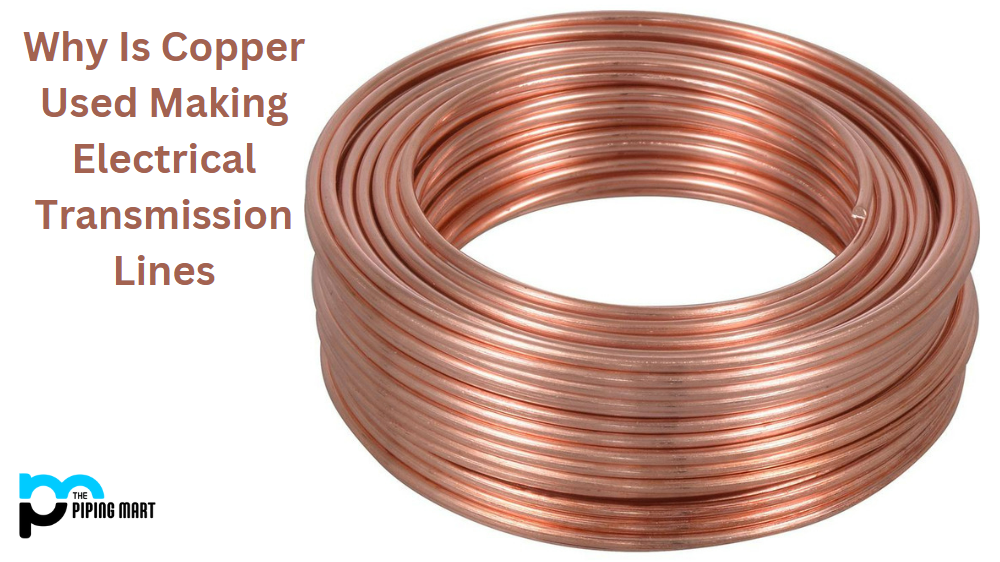Electricity is an essential part of our everyday lives, and it needs to get from where it’s generated to where it’s needed. Electrical transmission lines are how electricity is transported over long distances, but have you ever wondered why copper is most commonly used in making them? Copper is a unique metal with properties that make it the perfect material for electrical transmission systems. This blog post explores why copper is the go-to metal for electrical transmission lines.
Copper is an Excellent Conductor of Electricity
Copper has the highest electrical conductivity of any non-precious metal. This means that electricity flows through copper easily and with minimal losses due to heat. The high conductivity of copper also means that electrical energy can be transmitted over long distances with minimal power losses.
Copper is Durable
Copper is an incredibly durable metal resistant to corrosion and oxidation, which can weaken the metal and cause it to fail over time. Additionally, copper can withstand extreme temperatures and is not affected by ultraviolet radiation from the sun. This makes it the perfect choice for electrical transmission lines that need to withstand exposure to the elements over many years.
Copper has low Electrical Resistance.
Copper has a meager electrical resistance. Resistance is the opposition to current flow and the cause of energy losses in the form of heat. When electricity flows through copper, there is minimal resistance, resulting in less energy loss in the form of heat, improving the transmission line’s overall efficiency.
Copper is Highly Malleable and Ductile
It is a highly malleable and ductile metal, making it easy to shape and bend into the necessary configurations. This allows copper to be quickly drawn into wires with smaller diameters, reducing the transmission line’s weight and cost.
Copper is Abundant
Copper is a widely available metal with significant deposits in different parts of the world. Its abundance makes copper a cost-effective and practical material for electrical transmission lines. Moreover, a considerable portion of copper used in electrical transmission lines comes from recycled sources, reducing copper production’s cost and environmental impact.
Conclusion
Copper is a unique and versatile metal that is the perfect choice for electrical transmission lines. Its high electrical conductivity, durability, flexibility, low resistance, and abundance make it the ideal metal for this application. Using copper in electrical transmission lines ensures electricity is transported efficiently and safely with minimal losses. Therefore, copper is an important and valuable material in modern electrical power systems, and its use will undoubtedly continue to play a critical role in the future.

Meet Bhavesh, a seasoned blogger with a wealth of knowledge and experience. From metal products manufacturing to retail, Bhavesh has a diverse background in various industries and is dedicated to sharing his insights and expertise with readers.




